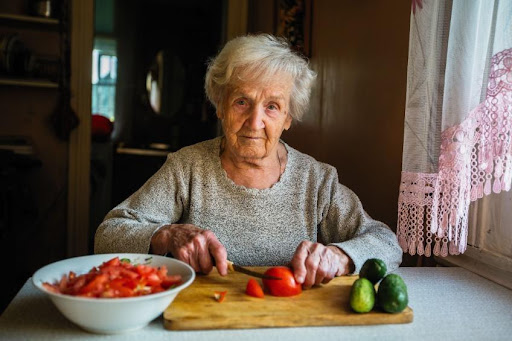
Malnutrition in Seniors
Malnutrition is a severe condition that can affect people at any age but is especially dangerous for older adults. According to the Health and Nutrition Examination Survey (HANES), 16 percent of community-dwelling Americans older than 65 consume fewer than 1000 calories daily, putting these individuals at high risk for undernutrition. On the opposite side of the spectrum, 29 percent of adults 65 and older are obese, according to the Statista Research Department.
Both undernourishment and over nourishment have health-related concerns. Understanding what malnutrition is and the risks of malnourishment can help you identify potential risks in loved ones and work with them to find a treatment.
What is malnutrition?
According to the World Health Organization, malnutrition is when there are deficiencies, excesses, or imbalances in a person’s intake of nutrients.
There are two broad categories of malnutrition. The first is undernutrition which includes when a person is underweight or high for their age. Undernutrition also includes people who have micronutrient deficiencies, such as a lack of essential vitamins and minerals in their diet. Unfortunately, many older adults may have chronic conditions at risk for undernutrition, such as cancer, diabetes, and dementia.
The second category of malnutrition is over nutrients, including people with obesity. Many hormonal changes occur between 50 and 65 that may cause changes in how an individual accumulates weight. Other older adults may not fully understand nutrients and are unaware of the nutrients, vitamins, and minerals they need to stay healthy.
Malnutrition complications
A person’s weight is not the sole concern of malnutrition. Not having the proper nutrients to fuel the body can lead to various health concerns, such as infections, fractures, and heart disease.
- Increased risk of infections- People who are malnourished have a weakened immune system, which can increase the risk of diseases, infections, and other conditions.
- Increased risk of broken bones or fractures- Seniors need proper nutrition to maintain bone health to decrease the risk of bone mass loss, making it easier to break and fracture bones.
- Increased risk of heart disease or stroke- Seniors who struggle with obesity are more likely to have high blood pressure, which significantly increases the risk for heart disease and stroke.
Helping a malnourished loved one
If you have an aging loved one who you believe is malnourished, consider the following to help them get proper nutrients into their diet.
- Encourage them to visit the doctor. Many factors can contribute to malnutrition in older adults, and your loved one needs to speak with a doctor to ensure their malnourishment is not a symptom of another condition.
- Talk to a registered dietitian. Simply telling your loved one to eat more or less is not the best approach to malnutrition. You want to ensure your loved one is eating nourishing foods to help keep their body healthy. Take your loved one to a registered dietitian and talk to them about the best way to nourish the body.
- Help your loved one meal plan and prep. Not knowing what to eat sometimes leads to non-nutritious meal choices, contributing to malnutrition. Help your loved one plan weekly meals, grocery shop, and cook everything for simplicity and efficiency throughout the week.
- Consider more liquid calories between meals. Eating solid foods is challenging for older adults, and it may keep some of them from eating as much as they need to. Help your loved one incorporate liquid calories from smoothies or broth-based soups to nourish their bodies between meals.
How Visiting Angels can help
If you have an aging loved one who needs help preparing nutritious meals to keep them healthy, the team at Visiting Angels can help. Our caregivers can assist your loved one with grocery shopping, meal preparations, cooking, and cleaning dishes after a meal. They can also provide other nonmedical services like light housekeeping, medication reminders, personal grooming, and mobility assistance.
Our Ravenna office works with clients in Portage, Geauga, and Southern Cuyahoga Counties. If you’d like to learn more about our services or schedule a complimentary consultation, send us a message or call 330.297.2000.
